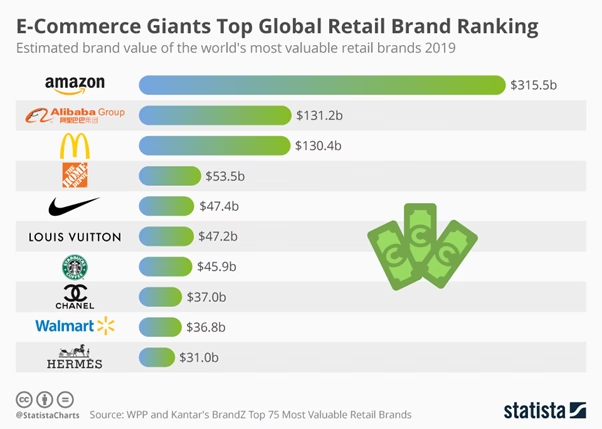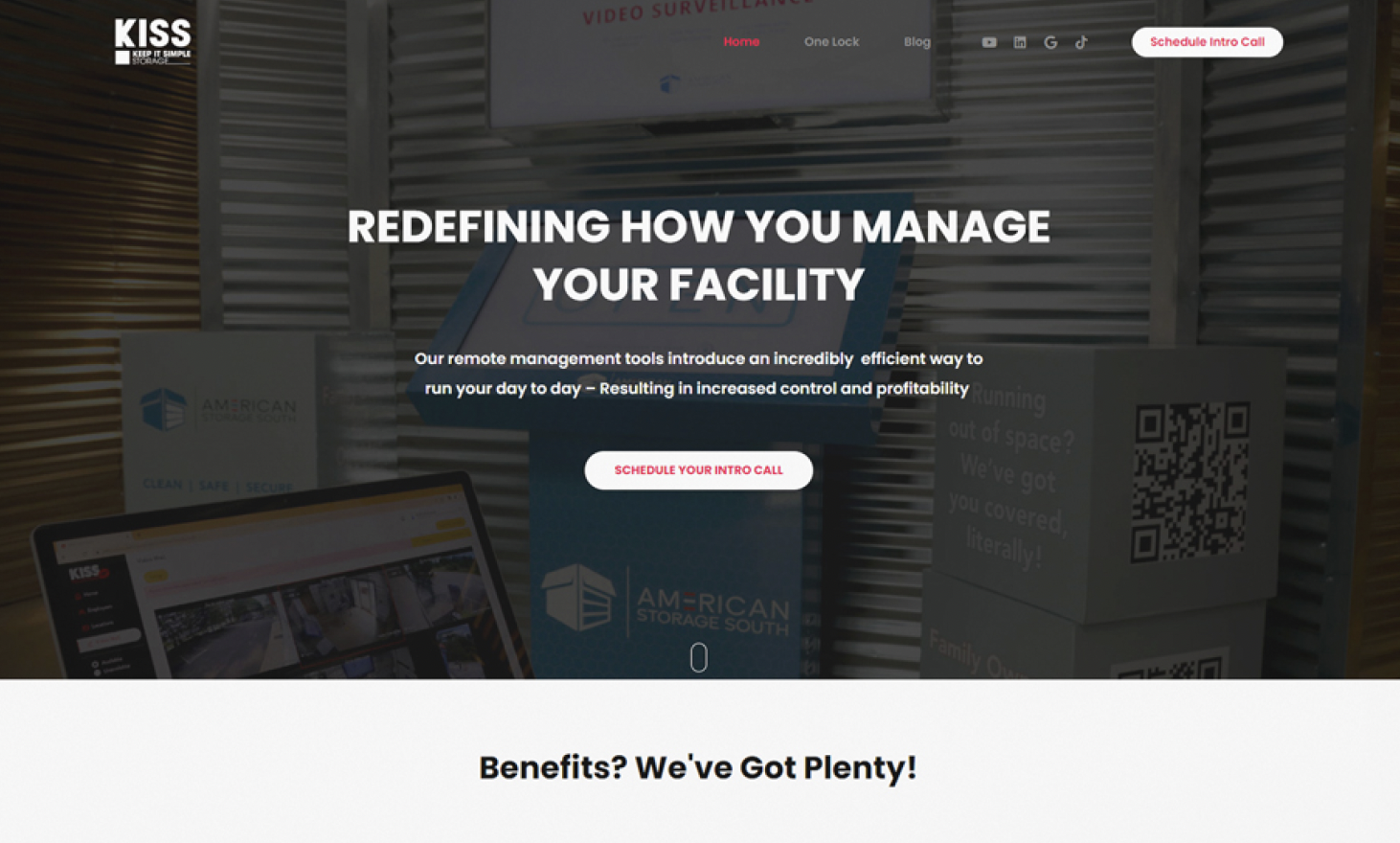- Developers
- Developer Blog
- Software Development
- A Guide to Building an eCommerce Software Solution

profile
Verified Expert
1 year of experience
Alexey Semeney is an entrepreneur, founder, and CEO of DevTeam.Space. He is a product development expert and an occasional writer on different topics related to team management and product development. He is an avid traveler and sports enthusiast.
Are you looking for a guide on how to build an eCommerce software solution?
You’ve come to the right place.
According to a study done by Statista, “Revenue is expected to show an annual growth rate (CAGR 2020-2024) of 8.1%, resulting in a projected market volume of US$3,102,791m by 2024”.
Besides all the money you can make, innovating in this industry represents a chance to make a positive impact on people’s quality of life. Here’re a few amazing case studies of companies who hired DevTeam.Space to build their eCommerce products:
- Fun And Function – Toy eCommerce App
- SoBe – Furniture Retail eCommerce Web Application
- South Florals – Floral eCommerce Web Application
Decide What Type of Software Solution You’ll Provide
There are two categories of ecommerce software:
- On-premise
- Software as a Service (SaaS)
Which one is better for your company? Let’s look at each more closely.
On-Premise
This is the more traditional software option. You sell your software, and the client installs it on their servers.
Pros
- The initial sales price is higher than with SaaS
- Less infrastructural requirements because the client uses their servers
- Keeping the software up to date is the client’s responsibility
- Clients will need to pay for upgrades at a later stage.
Cons
- There are no recurring fees
- Clients might fail to upgrade the software, thus exposing themselves to cybercrime
- Consumers could be put off by the initial outlay.
SaaS
This is a newer concept in the software world. The model is different in that the client rents your product instead of buying it outright. Most solutions today operate from the cloud, so the client doesn’t need to install it on their servers.
Pros
- Cost-effective for clients
- You’re in control of all the updates
- It’s a recurring income
- Solutions work in the cloud, so there’s no need to produce software discs
- Easy to scale operations.
Cons
- Your infrastructural requirements are higher
- Clients can opt to change to a new provider fairly easily
- The company must provide more support
- Your product will require frequent tweaks and upgrades to stay competitive.
Most companies today are adopting SaaS models. The primary benefit of these services is that it’s simple to scale up your business. You can always use the services of other SaaS models to reduce infrastructural challenges. Some companies, such as HatchingWeb, offers a dual option — you can start with one model and switch over to the other seamlessly as your business grows.
Examples of Companies Running Efficient Ecommerce Solutions


Get a complimentary discovery call and a free ballpark estimate for your project
Trusted by 100x of startups and companies like
Image source: Statista
Amazon and Ali Express are undeniably the masters of the eCommerce industry. Take a look at how their processes operate as an example of what your software will have to compete with. In the Statista chart below, you’ll see the top ten brands in 2019.
Take some time to look at their sites and see how the process works. What are the steps between searching for a product and completing the sale? This provides valuable insight into what your software should be able to do.
What are the Basic Features You’ll Need to Incorporate?
No matter what other features you offer, you’ll need to include the following, at the very least. Naturally, you’ll want to find a way to distinguish your product offering.
Manage Both Clients and Orders
Start by mapping out the client journey step by step. The process must flow smoothly. A basic sales process includes the following steps:
- Searching for a product
- Selecting items from the store
- Confirming the cart
- Proceeding to checkout
- Payment
- Order confirmation.
Your software must complete this process flawlessly. Clients must be able to check out as quickly and efficiently as possible.
At this stage, it’s also essential to determine what payment solution you’ll offer. Will you build your payment gateway or use an existing service? Partnering with a reputable payment processing company is a good move.
Another thing to consider is whether or not your solution will provide CRM data. If it won’t, you’ll have to ensure that the software is compatible with the leading CRM programs.
Are you going to offer shortcuts for users like One-Click payments? In the screenshot below, you’ll see how Amazon handles this situation. Clients can streamline processes by using one-click purchases.

Stock and Product Management
How easy is it for the store owner to update descriptions? Will your software provide inventory management solutions? Will it alert your clients about items that are moving fast? The top ecommerce solutions provide these features.
SEO Products
Will you build in SEO factors to make marketing simpler? This could be a good selling point, providing your client with an all-in-one-solution. Many online providers have great product offerings, but no idea of how SEO works.
Want some ideas on what improves the SEO of a page? Check out Info Bunny’s Guide to SEO.
Automatic Taxation and Shipping Calculations
Consumers, in general, want companies to be more transparent about prices. You’ll have to ensure that your software can make these calculations accurately.
An Enhanced Customer Service
What other features do you think will enhance the customer experience? What’s lacking in the products on the market at the moment? Can you make the processes smoother?
Hire expert developers for your next project
1,200 top developers
us since 2016
A Well-Designed Product Catalog
Naturally, your design will need to include some sort of catalog feature. Having a recommended product feature built into the pages is another basic minimum that you’ll have to consider.
Automated Options
The easier you can make your client’s lives, the better for you. What kinds of automated options can you include that’ll make things easier for merchants? Shipping calculators assist the buyer. The merchant might require more complex systems like an automated email confirmation option, reports, and so on.
Website Builder
Will you incorporate a website builder, or will you use a service from another company instead? Many consumers are looking for simple options. Creating a simple website builder will cost more, but it could have a significant advantage.
By providing templates for your clients, you control all the aspects of the site that they’ll build. This makes it a lot easier to ensure that your clients get the full benefits. You can make sure that your software is integrated correctly.
Other Things to Consider
Market Research and Testing
You’ve got a great idea for new ecommerce software. Is there enough demand for your product? You might add some great features, but how will you convince consumers to switch? While we all assume that consumers will switch when they see the benefits, that’s not always true.
People have an inherent aversion to change. An extra feature or two won’t necessarily sway them. You also have to make it as easy to switch as possible.
The only way you’ll find out if you have a viable shot is to do the research upfront.
Mobile-Friendly
How well will your software work on mobile phones? Is it going to load fast and display well? M-commerce increased by $485 million between 2013 and 2016. Can you afford not to cater to it?
Scalability
The chances of being an overnight success are slim. But it’s important to consider scalability options early on. How easy is it to upscale your operations in need? How will you cope with the influx of new clients?
This is particularly important when you’re selling a SaaS product. If your service levels drop because you’re onboarding a lot of new clients, your business is in trouble. Create a plan now to deal with this possibility.
Identify possible bottlenecks and come up with workarounds. Building your product so that it’s easy to scale from the start makes future growth a lot simpler.
How Adaptable Is Your Product?
Again, this is especially important if you’re creating a SaaS product. As consumers start to use it, they’ll provide feedback on how to improve it. If you ignore those recommendations, on the whole, you’re going to lose business.
Start planning now on how you’ll deal with product tweaks. Can you build in a structure that’s easy to adjust to match changing technology? What new features could you introduce at a later stage to keep the buzz going?
How Will You Deal with Slower Connections and Downtime?
If you’re a SaaS business, your clients choose your product because it gives them instant access wherever they’re based. That’s fine if you live in a country where internet access is relatively good. If you’re marketing to clients in companies with less coverage or slower internet options, can you provide a scaled-down offering to make things smoother?
Your Pricing Options
It’s always a good idea to have different pricing options for various clients. Generally speaking, SaaS services charge per user. With ecommerce software, this isn’t an option. Plan around creating a base product, then build in more features to provide upgraded packages.
Hire expert developers for your next project
This range allows clients to select the option that best suits them. It gives them a few different price points to choose from.
Final Notes
Creating new ecommerce software that will sell is easier said than done. You must create a product that provides a clear advantage over what’s on the market. If you don’t, it’ll be difficult to convince consumers to switch over.
To give yourself the best chance of success, conduct proper market research. Where do current ecommerce products fall short? What useful features could you offer instead?
Finally, it makes sense to consider scalability from the outset. If you suddenly added 20,000 or 100,000 clients, would your current systems cope? If not, how can you adjust your business model? What kinds of bottlenecks can you foresee, and how will you deal with these?
With any type of software that you develop, careful planning is essential. This case is no different.
Frequently Asked Questions
What is an eCommerce Software Solution?
It is any web or mobile application that allows users to buy products online. There are 4 types of eCommerce business models. The most famous example is Amazon.com.
Can anyone create an eCommerce Software Solution?
Provided you have access to the right developer skills then anyone can build an eCommerce platform. However, quality matters so the best option is to onboard expert developers from sites such as DevTeam.Space.
How to build an eCommerce Software Solution?
Write a product specification, build a great development team, set up the infrastructure, build an MVP to get customer feedback on how to refine your idea, then go to a full version launch.

Alexey Semeney
Founder of DevTeam.Space
Hire Alexey and His Team To Build a Great Product
Alexey is the founder of DevTeam.Space. He is award nominee among TOP 26 mentors of FI's 'Global Startup Mentor Awards'.
Alexey is Expert Startup Review Panel member and advices the oldest angel investment group in Silicon Valley on products investment deals.


